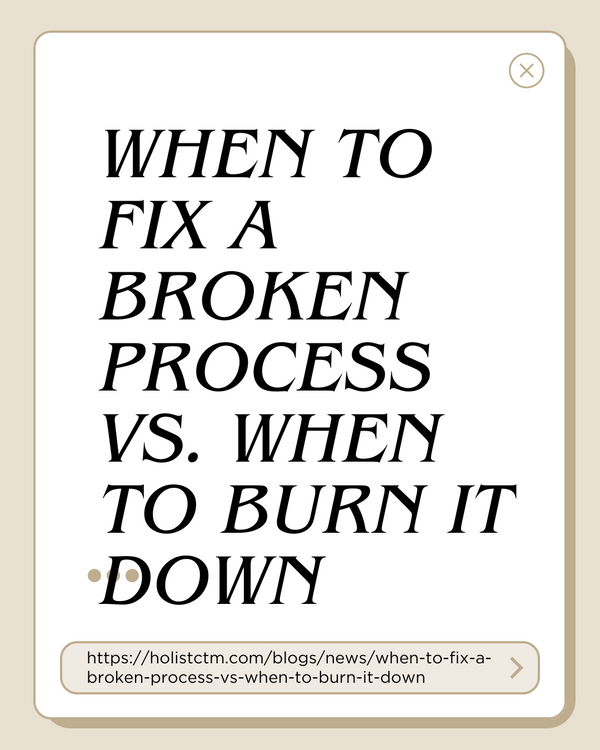Latest from our blog
Discover insights, updates, and helpful content.
Managing multiple properties at once can feel overwhelming. Every new property adds another layer of data to track — tenant leases, owner contacts, rent payments, maintenance logs, accounting records, and more. If your data is disorganized, what should be routine can quickly spiral into costly mistakes and stressful fire-fighting.
This guide will walk you through why a data audit is essential for multi-property managers, what it involves, the most common data issues, and how to conduct one effectively. By the end, you’ll see how data audits transform property management into a more efficient, transparent, and scalable operation.
For a manager handling multiple properties, data isn’t just “stored information” — it’s the lifeblood of the business. A small error in one property’s data may be manageable, but when scaled across dozens or hundreds of units, those errors multiply rapidly.
Some reasons data accuracy is mission-critical:
Owner Confidence – Owners expect timely and accurate reports. An error in arrears, expenses, or rent collection figures undermines trust and can lead to client churn.
Operational Efficiency – Teams waste countless hours reconciling mismatched data instead of focusing on higher-value tasks.
Compliance – Mistakes in trust accounting, lease renewals, or safety logs expose businesses to fines and legal risks.
Scalability – Clean, consistent data makes it possible to grow your portfolio without chaos.
A data audit is a systematic review of your property management data to verify accuracy, completeness, and consistency. It involves:
Checking records for errors, omissions, or duplication.
Cross-verifying key information (leases, payments, contacts, maintenance tasks) across systems.
Ensuring outdated or incorrect records are updated or removed.
The purpose is simple: ensure that your “source of truth” can be trusted. With clean data, you can make better decisions, generate reliable reports, and avoid embarrassing mistakes that damage client relationships.
When managing many properties, certain data issues appear repeatedly. Here are four of the most common, their causes, and risks:
| Data Problem | Root Cause | Business Risk |
|---|---|---|
| Duplicate tenant/owner records | Manual double-entry; no unified system | Double billing, wasted time, client confusion |
| Inconsistent arrears reporting | Different tracking methods; delays in updating | Misleading owners, missing owed income |
| Missing maintenance logs | Reliance on paper/informal notes | Unresolved repairs, compliance breaches, higher costs |
| Lease renewal errors | No reminders; expired dates not updated | Lost tenants, revenue gaps, legal issues |
Each of these problems compounds in a multi-property context, turning minor data lapses into significant financial and reputational risks.
Here’s a practical framework to conduct an effective audit:
Map All Data Sources
List every place your data lives: CRM, spreadsheets, accounting tools, maintenance logs, email folders.
Document which properties and departments use each system.
Cross-Check Key Data for Accuracy
Compare rent rolls with bank deposits.
Match tenant balances across lease systems and accounting reports.
Look for discrepancies and correct them.
Identify Gaps and Inconsistencies
Check for missing fields (emails, lease dates).
Standardize formats (dates, categories of expenses).
Update outdated or incomplete entries.
Automate Validation Where Possible
Use software rules to prevent duplicates.
Leverage automation tools to sync data between systems.
Consider AI or scripts to flag anomalies.
Standardize Templates and Reporting
Use consistent lease entry forms, charts of accounts, and maintenance logs.
Schedule quarterly mini-audits to keep everything aligned.
Property Management Platforms: All-in-one solutions like Yardi, Buildium, or PropertyMe consolidate leases, accounting, and maintenance into one system, reducing silos.
Automation Tools: Services like Zapier or Make can connect systems (e.g., adding new tenants from a CRM to a rent roll automatically).
Data Validation Scripts: Simple formulas in Excel/Google Sheets highlight duplicates or outliers for easy correction.
AI Assistants: Modern property management CRMs often include built-in AI to detect errors and streamline repetitive tasks.
A mid-sized property group managing 300+ units struggled with duplicate tenant entries, mismatched arrears figures, and maintenance requests scattered across emails and spreadsheets.
After conducting a full data audit, they discovered:
20% of records were duplicates.
$10,000 in arrears had been missed.
Dozens of completed repairs had never been logged or billed.
The company cleaned up the records, consolidated systems, automated key workflows, and standardized templates. Within three months, staff saved over 12 hours per week previously spent reconciling mismatched data, recovered the missed arrears, and restored owner confidence with error-free reporting.
Accurate Reporting – Financial statements and arrears reports that owners can trust.
Compliance Readiness – Audits and inspections handled with less stress and risk.
Efficiency and Cost Savings – Staff spend more time on value-added work, less on chasing errors.
Happier Clients – Owners receive transparent reporting; tenants see faster, more accurate service.
Scalability – Clean data makes it easier to onboard new properties without chaos.
The next wave of property management will see audits becoming more proactive and technology-driven:
Predictive Maintenance using sensor data and AI to forecast issues before they happen.
Automated Compliance Checks ensuring safety certificates and inspections are always up to date.
Real-Time Dashboards giving owners live updates instead of monthly summaries.
AI Insights analyzing portfolio data for trends, profitability, and growth opportunities.
Data chaos is one of the biggest hidden risks in multi-property management. Left unchecked, it creates inefficiencies, erodes owner trust, and makes scaling nearly impossible.
A structured data audit — mapping sources, cross-checking accuracy, filling gaps, automating checks, and standardizing processes — turns messy records into a strategic asset. Clean data improves efficiency, reduces compliance risks, and strengthens relationships with both owners and tenants.
For multi-property managers, data audits aren’t optional. They’re the foundation of sustainable growth and operational excellence.
Discover insights, updates, and helpful content.





